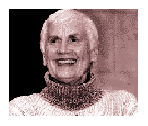 When I was young I could drink anybody under the table. I was always the one who drove friends home, held their heads when they got sick, and tucked them into bed. I loved to drink. I loved the taste, the glow liquor gave me. I never wept, never got ugly or maudlin or threw things. I rarely suffered from hangovers. After college I lived in the newspaper world, a culture where heavy drinking was considered a badge of maturity. I had a ball, all through my twenties. And then, imperceptibly, I needed more to get the same kick. By my early thirties I was having a snort or two before going to a party. Any pretext to take a drink would do: when I was happy, when I was sad or frustrated or tense, when I was lonely, when I was with friends. The whiskey and sodas got darker with every passing year. I was a boring alcoholic. Liquor dulled me. I slept a lot. I became another, muffled self.
When I was young I could drink anybody under the table. I was always the one who drove friends home, held their heads when they got sick, and tucked them into bed. I loved to drink. I loved the taste, the glow liquor gave me. I never wept, never got ugly or maudlin or threw things. I rarely suffered from hangovers. After college I lived in the newspaper world, a culture where heavy drinking was considered a badge of maturity. I had a ball, all through my twenties. And then, imperceptibly, I needed more to get the same kick. By my early thirties I was having a snort or two before going to a party. Any pretext to take a drink would do: when I was happy, when I was sad or frustrated or tense, when I was lonely, when I was with friends. The whiskey and sodas got darker with every passing year. I was a boring alcoholic. Liquor dulled me. I slept a lot. I became another, muffled self.
Occasionally, I would wander off at parties for a refreshing hour’s nap in a guest bedroom, and then return, wondering why the other guests were looking so embarrassed. I withdrew in subtler ways. My husband used to say, “When Nan gets bombed, she goes off into some little room in her mind, and pulls down the shade.”
When I was sober, which was still most of the time, there was sparkle and energy and, often, joy. But when my husband died when I was 44, the last control on my drinking snapped. For several months after Stan’s death, I drove suicidally while drunk. One day, I realized with horror that I would kill or maim another person if I kept on. I stopped driving while drunk. But I didn’t stop drinking. I took taxis, or asked friends to drive me home, or to put me up overnight.
I hit bottom four years later in Lisbon, where The New York Times had sent me to cover Portugal’s first free elections in 40 years. After two days of conducting interviews and drinking heavily at night in the hotel bar with the other correspondents, I sat down to my typewriter. I could not write a single sentence. I read and reread my notes. They were chaos. Or rather, my mind was chaos. I paced and sweated in that hotel room for eight hours. For the first time, I could not summon at will almost 30 years of experience and discipline as a professional reporter.
I called my bureau chief in Paris. “Flora,” I said, “I’m at the end of the line. I can’t read my notes. I can’t write a word.”
It was nervous tension, Flora said. I was exhausted. I had been working myself to the ragged edge. “It isn’t any of that, Flora,” I said. “It’s booze.”
After a crucial conversation with a doctor friend whose own father had killed himself with alcohol, devastating his family, I returned to New York and checked myself into the Smithers Alcoholism Rehabilitation Center in November, 1975.
My recovery there began the day I stopped lying to my mother.
My habit was to spend every Thanksgiving with her in Illinois, but this year I would still be in Smithers. Because I could not bring myself to tell her I was a drunk, I thought up all kinds of excuses for my absence. I pleaded with my counselor, with the patients in my therapy group: “She is eighty-three years old! She was born in Victorian times! I can’t say I’m an alcoholic — this will kill her!” The others were adamant. You can’t lie anymore, they said.
I telephoned Mother, sweating with apprehension. I told her I could not come home for Thanksgiving. Oozing counterfeit charm, I explained, “Oh Mother, I’m in the most wonderful place with the most wonderful people. There are stockbrokers from Yale, and welfare mothers, and accountants like yourself, and . . . “
Mother came back like a shot: “Is that a place for alcoholics?”
“Wellll, Mother, ” I said, “Wellll, yes, there are some problem drinkers among us, and . . . “
“Oh, Nan darling,” my mother said. “You’ve made me so happy. I’ve been worrying about your drinking for years.”
Tears came to my eyes. I have never loved my mother more.
I got better, one day at a time, first at Smithers, then in meetings of Alcoholics Anonymous. Sometimes I suffered, but I did not drink. I discovered in AA that I would never be alone again — that I could get help and support within moments of stepping out of my front door or picking up a telephone. You cannot imagine the relief, the way the burdens roll off. There is no therapy more powerful than just sitting in a meeting and listening to the lives of other people who, you realize, have all the same problems you do — and then telling them about your own. In AA I have learned the meaning of mercy, and friendship, and understanding laughter, of giving a hand to others instantly, with no thought of reward.
It is 22 years since I took my last drink of alcohol and went that November day into the patients’ phone booth to call my mother. I told her the truth. It was the first step to becoming true to myself.
Pulitzer-Prize-winning former reporter for the NEW YORK TIMES and the author of GETTING BETTER: INSIDE ALCOHOLICS ANONYMOUS.
(This article is an excerpt from the Viewer’s Guide for MOYERS ON ADDICTION: CLOSE TO HOME, produced by Thirteen/WNET’s Educational Publishing Department)


